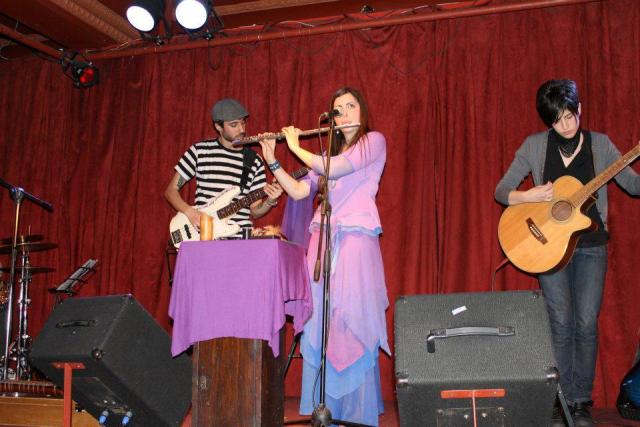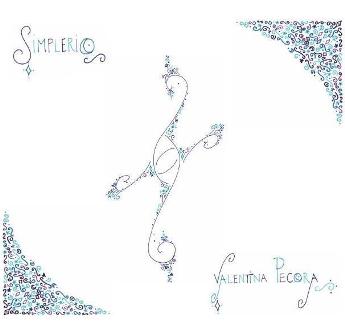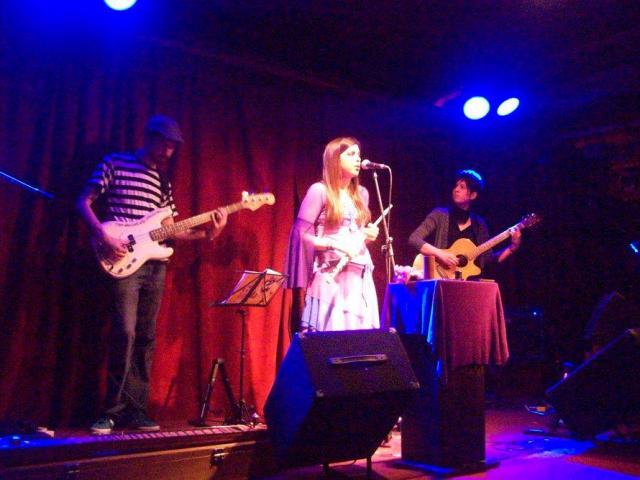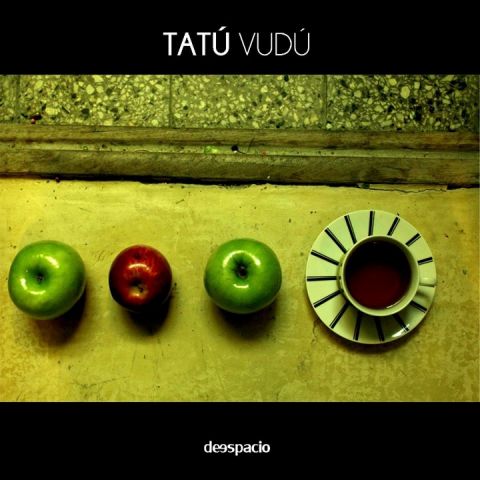
You are the one who creates the world you inhabit, and that world is going to be as peaceful as the eye through which you see it. The light that reigns in your reality comes from it, and it reaches everything as if it proceeded from a lighthouse that can cut to the very heart of the most hermetic of nights.
But in the same way that faith has got a diaphanous facet, it has also got a dark side that can thicken the world with demons, with fugitive shadows that can murk every new beginning and (eventually) envelop it in a terrible intentionality.
The frontier that separates one from the other is permeable, and what you see as radical can be deemed as insignificant by the person next t you.
And “Simplerio” moves along that mutable frontier, trying to elucidate what to believe in and what to leave alone. Issued by Perro Andaluz in 2011, “Simplerio” is the first studio album by Valentina Pecora, a young flute player that has been involved in music all her life. Her stage career started at age ten, and today she keeps a steady flow of live performances, at the same time she works as a flute teacher. Valentina wrote all the songs, designed the artwork of the album and she even produced it. Her main instrument is the transverse flute, but on “Simplerio” she also played several other flutes, guitars and many different types of percussion instruments. She was aided by Ney Peraza, Julia Melo, Gonzalo Reyes and Ernesto Díaz on guitars, Federico Pérez on bass, Rodrigo del Castillo on Peruvian cajón, Diego Revello on violin, Leo Giovannini on percussion and Guillermo del Castillo on bass and electric sitar. Led by Valentina, this ensemble created an album with a sonority of its own, and a very distinctive intellectual depth.

At its core, “Simplerio” (which could be translated into English as “the easiest of things”) tries to cast light on a series of questions that we all can relate to.

Where should we put our faith so that we can use it to build a new world, and not to destroy the one that’s already there? Where do we place our trust? How can we bring into being an “illusion that illuminates”? How do we close the distance that separates dialogues from reactions? How is the ritual of affection configured if (as it’s described on the lyrics) the way has got no handrails, and everything hangs precariously from a crane of crystal?
“Simplerio” poses all these questions, and it does so permanently, like a flood of thoughts that never relents. But even when the album has got such a thematic intensity, the overall mood is one of gentle caresses, not of heavy ruminations. Its songs are as sweet as the title of “Frutillas de Algodón” [Cotton Strawberries] suggests, and there’s no offhandedness on the lyrics, no matter how deep and thoughtful they are. Continue reading →





